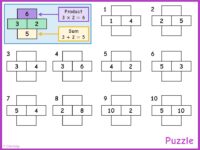During my NQT year, I worked at a school that was big on cooperative learning and using Kagan structures. I confess, I was never a huge fan – all the jazzy names got a bit complicated and all seemed to have the words “Round” or “Robin” in them. Interestingly, that fad seems to have fallen by the wayside now – I’ve not heard anyone talk about it for a while, in UK schools at least.
However…I love Rally Coach. I’ve not touched many of the other cooperative learning strategies for a good few years, but I still use this one. It’s a fantastic way to jazz up those “do 10 questions to remind you about last lesson” starters.
Students work in pairs. They choose who is A and who is B, and are given a set of problems to do. For any pesky groups of 3, two As and one B works fine.
Student A tackles their first problem, while B watches and either praises if the question is done correctly or coaches if A gets stuck. Once A has done their first problem, students switch roles and B does their first question while A praises/coaches as necessary. Students continue to alternate in this way through the problems until they have finished.
Depending on how organised I am, I either put the problems on the board, or create a worksheet. I much prefer the latter as it has two major benefits:
- I’ve found that giving one worksheet between two means that students actually do the activity properly, rather than just rushing to answer their set of questions – as they are sharing the same sheet, they can’t do the problems simultaneously (although I have seen one pair of students try and fail hilariously).
- Students can tear the worksheet in half at the end of the activity and keep their problems; particularly useful if they have corrected or written on each other’s work!
However, we all have photocopying bills and a finite amount of time. The activity works adequately on a board or even with problems from a textbook.
The emphasis is on peer coaching and using independent learning skills (e.g. prior knowledge or notes from previous lessons). It takes a bit of training to get them doing this properly, but it’s worth doing. The first few times I run a rally coach with a new class, I get them asking me straight away rather than each other – I just refuse to answer until they get the message! Once we’ve done it a few times, I tell students to put deliberate mistakes in if they think their partner isn’t fully engaged and listening to what they’re saying.
